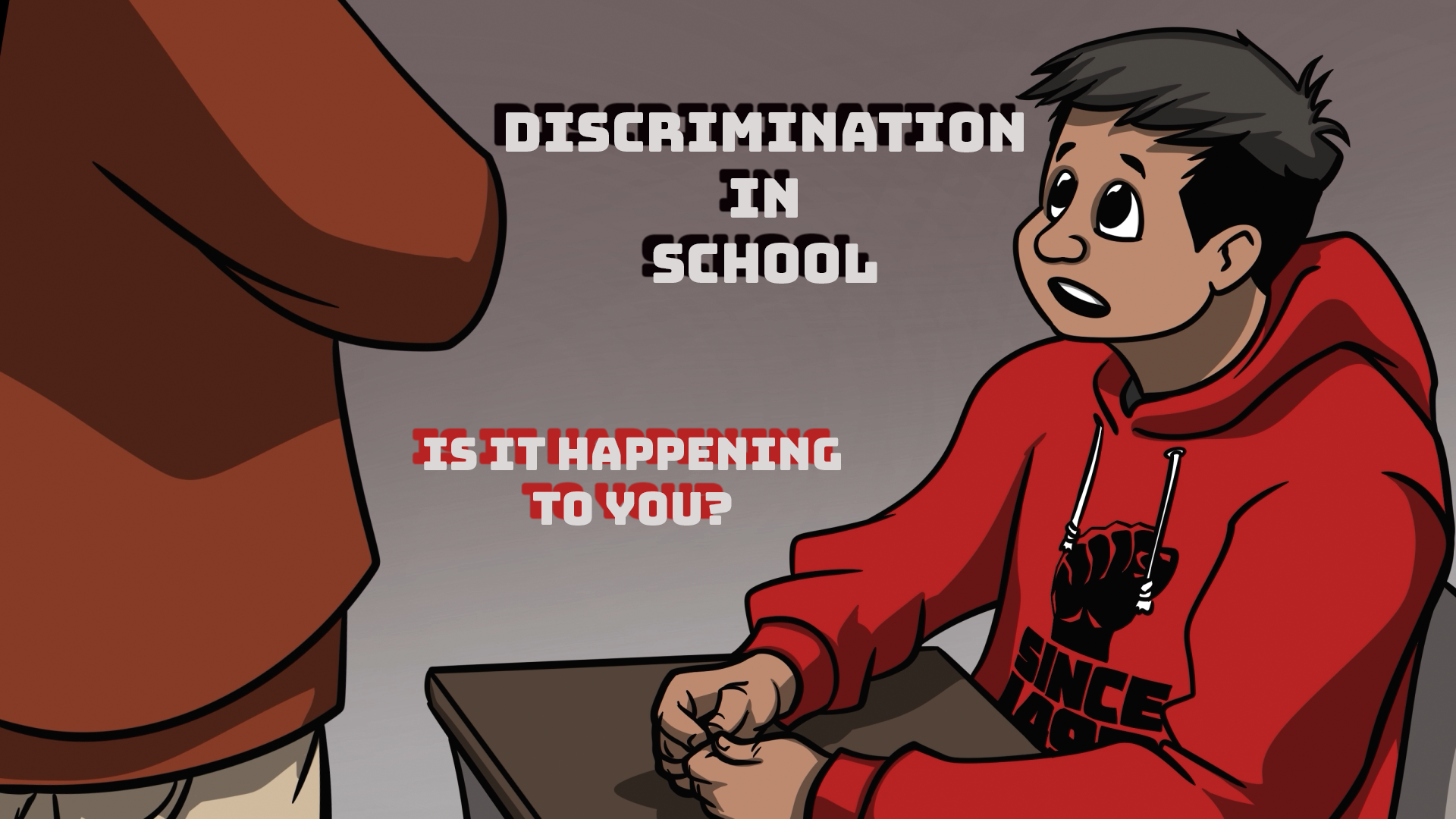Native Student Rights in New Mexico Schools
The Native American Curriculum Partnership provides resources to support students experiencing discrimination in their schools. These resources will educate our community members to:
- understand what discrimination is and
- understand their rights when school disciplinary action is instituted
- to detect racism in schools (educators, curriculum, and other sources
Here is the link to the PSA: https://youtu.be/I2JNxCJq2FA

Students: What are your rights at school?
What are my rights for dealing with police officers at school? Under the United States Constitution and the New Mexico Constitution, you never have to answer questions by law enforcement. You always have the right to remain silent and the right refuse to answer any and all questions. If you choose to answer questions by law enforcement, however, you are voluntarily doing so. Just remember: anything you say can and will be used against you.
What can I do if a police officer is investigating me for something that happened at school? Law enforcement has a duty to investigate crimes that occur on schools. During investigations, this means that they may want to talk to you to find out what you know. Sometimes they may seek the help of staff or school officials. So, if a police officer, security guard, or other school official is investigating you for an incident that occurred at school, you may simply respond to their requests for answers by stating any of the following:
- “With all due respect, I do not want to answer your questions.”
- “I refuse to answer your questions without a lawyer present.”
- “I wish to assert my right to remain silent.”
Can police search me on campus? Police are allowed to search you or your belongings so long as they believe that you are involved in criminal activity. You, as a student, have the right to refuse a search by police officers. However, your refusal may not stop the search from happening. But it is important that you still assert your right to refuse the search, which may help you later if you are charged with a crime. Most importantly, if you are approached by police, it is crucial for you to stay calm, avoid arguments or resistance, and ask if you are free to leave. Here are a few things you can say:
- “Officer, with all due respect, I do NOT consent to any searches.”
- “Officer, if I’m not being detained, I’d like to leave.”
What if I’m arrested? If arrested, you have a right to remain silent and request a lawyer. Remember, anything you say can and will be used against you. So, it is best to wait until you can talk to an attorney, before ever speaking to law enforcement.
Where can I find more information about my rights at school? The following ACLU website, https://www.aclu.org/know-your-rights/students-rights, provides more information about student rights in a variety of contexts, including:
- Student rights under the First Amendment;
- Immigrant student rights;
- Rights of students with disabilities;
- Rights of LGBQT students;
- Rights of pregnant students.
- Rights of students to wear Tribal Regalia.
What are my rights if I’m suspended or expelled from school? You, as a student, have a right to due process. This means, schools must notify you about the school policies or laws that you violated and the evidence to be used against you. You have a right to legal representation. You also have a right to a hearing, where you, or your attorney, may present evidence in your defense. You also have the right to appeal a school’s decision to suspend or expel you.
The following websites can provide you more information about your rights during student suspensions and expulsions:
- ACLU: https://www.aclu-or.org/en/know-your-rights/your-right-fair-treatment-aka-due-process#:~:text=Contact%20your%20local%20ACLU%20chapter,of%20the%20class%20or%20detention.
- Pro Publica: https://www.propublica.org/article/what-to-know-new-mexico-schools-discipline
Where can I find legal representation on issues involving the violation of my rights as a student and/or if I’m suspended or expelled? If you believe your rights have been violated, or if you have been suspended or expelled, you have the right to seek legal representation. If you choose to seek legal representation, you must first consult with a lawyer who can assess the viability of your case.
In these situations, students may contact the American Civil Liberties Union of New Mexico (ACLU-NM). While the ACLU is not always able to provide legal representation, their attorneys can help provide you guidance on where to go and what to do next. https://www.aclu-nm.org/en/get-legal-help
Here is a list of other advocacy organizations that can help students and parents navigate other legal issues:
ProtectingParents&Students'Rights–EducationalVideos
Legal Services Links
UNM Southwest Indian Law Clinic
lawschool.unm.edu/Indian/indian-clinic.html
Phone: (505) 277-5265
DNA People’s Legal Services
dnalegalservices.org
Service area: Chinle, Fort Defiance, Tuba City, Hopi, Farmington, and Flagstaff
Native American Disability Law Center
nativedisabilitylaw.org
Statewide: (800) 862-7271 Farmington: (505) 566-5880
American Civil Liberties Union
aclu-nm.org
Albuquerque Office: (505) 266-5915
In-take Form: action.aclu.org/legal-intake/nm-legal-complaint
New Mexico Legal Aid
newmexicolegalaid.org
Toll-free statewide intake number: (833) 545-4357 (833-LGL-HELP)
Gallup Office 211West Mesa Suites 5 & 6 P.O. Box 1475 Gallup, NM 87301 Phone: (575) 722-4417 | Las Cruces Office 600 E. Montana Suite D Las Cruces, NM 88001-4246 Phone: (575) 541-4800 | Santa Ana Office Native American Program 51 Jemez Canyon Dam Road Suite 110 Santa Ana Pueblo, NM 87004 Phone: (505) 867-3391 | Santa Fe Office 2905 Rodeo Park Dr E #6 Santa Fe, NM 87505 Phone: (505) 982-9886 |
Taos Office 204 Montoya St, Unit A Taos, NM 87571 Phone: (575) 758-2218 | Silver City Office 2005 Hwy 180 Suite 500 Silver City, NM 88061 Phone: (575) 388-0091 | Roswell Office 200 E. FourthStreet Suite 200 PO Box 1087 Roswell, NM 88202-1087 Phone: (575) 623-9669 | Las Cruces Office 600 E. Montana Suite D Las Cruces, NM 88001-4246 Phone: (575) 541-4800 |
New Mexico Center on Law & Poverty
nmpovertylaw.org
Phone: (505) 255-2840
UNM School of Law, Economic Justice Clinic
Phone: (505) 277-5265
US Department of Education
https://www.ed.gov/laws-and-policy/civil-rights-laws/protecting-students
